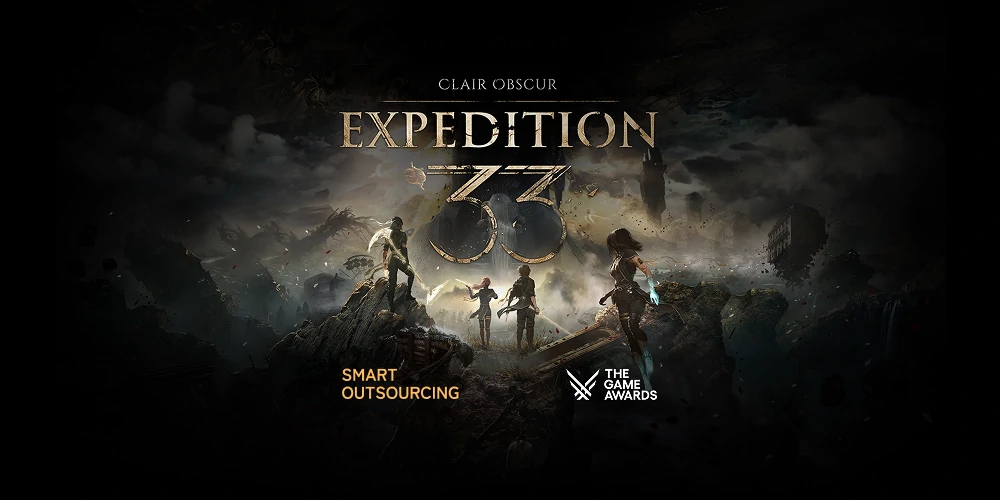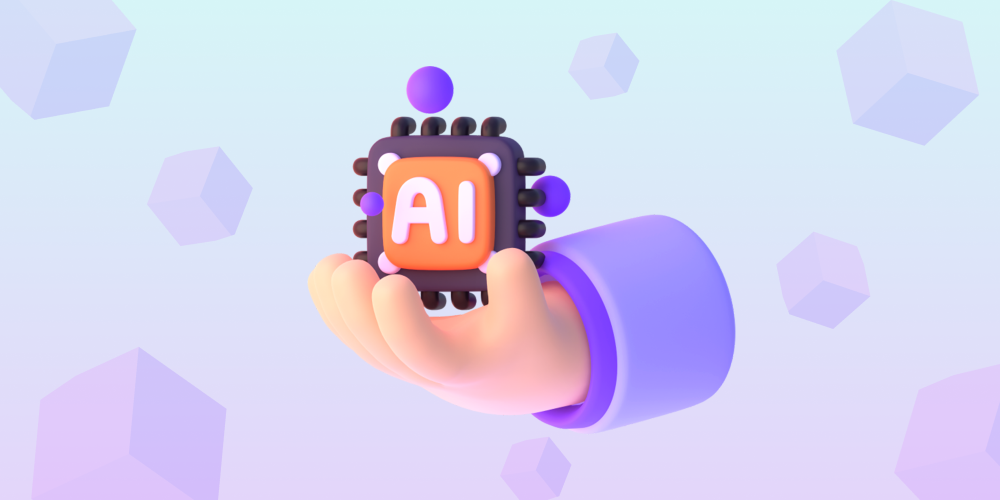KEY POINTS OF THE ARTICLE
- Introduction to AI’s transformative role in the gaming industry, enhancing development, gameplay, and storytelling.
- Overview of AI’s evolution in gaming from early AI opponents to adaptive virtual worlds and intelligent NPCs.
- Examination of AI’s contributions to game development including procedural content generation, debugging and character creation.
- Discussion on ethical challenges like data privacy and intellectual property concerns in AI integration.
- Idea of AI’s potential for advancing immersive gameplay, adaptive mechanics and virtual worlds in the future.
Artificial intelligence (AI) has become an indispensable technology across various industries, and the gaming industry is no exception. With its ability to analyze data, learn, and make intelligent decisions, AI has revolutionized the way games are developed, played, and enjoyed. From realistic graphics and immersive gameplay to dynamic difficulty adjustment and adaptive storytelling, AI has transformed the gaming experience, offering new possibilities and empowering game developers to create truly groundbreaking experiences. To efficiently integrate AI into game development, many studios hire game development outsourcing teams to leverage expert knowledge and advanced technologies.
Exploring AI in Gaming
AI’s impact can be seen throughout the gaming industry, from AAA titles to indie games. By utilizing machine learning algorithms, AI analyzes player behavior, adapts gameplay mechanics, and enhances the gaming experience. Whether it’s creating realistic characters, generating procedural content, or revolutionizing game graphics, AI is reshaping the future of gaming.
History of AI in Video Games
The artificial intelligence in gaming has a long history in video games, dating back to the early days of gaming. Initially, AI was focused on creating challenging opponents for players, with varying levels of difficulty based on player skill. As technology advanced, AI started to impact the gaming experience in more profound ways. Games like “Red Dead Redemption 2” and “No Man’s Sky” showcase AI’s role in creating immersive virtual worlds, where characters and environments respond to player actions.
Throughout the years, the video game industry has embraced AI, recognizing its potential to enhance gameplay. This history of ai in games is very useful for developers. Game developers have leveraged AI algorithms to create intelligent non-player characters (NPCs) that behave realistically, providing a more immersive experience. AI has also played a crucial role in level design, creating dynamic and interactive game worlds that evolve based on player choices and actions.
The Current State of AI in Games
In recent years, AI has reached new heights in the gaming industry, thanks to advancements in machine learning and neural networks. Game developers, especially those working in unreal game development, are now able to create games that adapt to individual player behavior, offering personalized experiences. This level of player engagement is achieved through AI’s ability to analyze data, learn from player actions, and dynamically adjust difficulty levels.
The integration of AI in game development has also revolutionized content creation. Procedural generation, a technique where AI algorithms generate game content such as levels, maps, and environments, has become more prevalent. This allows game developers to create vast and immersive worlds, saving time and resources in the process.
AI has also had a significant impact on game graphics and visuals. Nvidia’s DLSS (Deep Learning Super Sampling) technology, powered by AI, enables realistic graphics and enhances the gaming experience. By using AI algorithms to upscale lower-resolution images, games can achieve higher visual fidelity without sacrificing performance.

Impact of AI on Game Development and Design
AI has transformed game development and design, empowering game developers to create more immersive and dynamic experiences. With the help of the best ai in video games, game developers can automate content creation, procedural generation, and level design, reducing development time and costs. AI algorithms have also been instrumental in creating realistic characters, enabling adaptive gameplay mechanics, and enhancing game storytelling. The integration of ai in games development and design has opened up new possibilities and revolutionized the gaming industry.
Role of AI in Character and Environment Creation
One of the key areas where AI has made a significant impact is in character and environment creation. Traditionally, game developers had to painstakingly design and animate every aspect of a game’s characters and environments.However, with the integration of AI, this process has become more streamlined and efficient. It is the future of ai in video games.
AI algorithms can analyze vast amounts of data, such as motion capture data and design templates, to generate realistic characters automatically. These AI-powered characters can react intelligently to player actions, enhancing the immersion and realism of the gaming experience. Similarly, AI algorithms can also generate complex and dynamic game environments, adapting to player choices and actions in real-time.
Procedural Content Generation with AI
Procedural content generation, enabled by AI, has revolutionized the way game content is created. Instead of manually designing every level, map, or environment, game developers can now utilize AI algorithms to generate content automatically.
AI algorithms analyze data, such as player preferences, level design guidelines, and desired game mechanics, to create unique and immersive game content. The evolution of ai in video games allows game developers to create endless possibilities, ensuring that each gameplay experience feels fresh and exciting.
Procedural content generation also offers benefits in terms of scalability and development time. With the help of examples of artificial intelligence in games, game developers can create vast game worlds quickly, eliminating the need for manual design and reducing development costs. Additionally, procedural content generation allows games to adapt to player actions, ensuring that the gaming experience remains engaging and challenging.
How AI Enhances Game Storytelling
AI has made significant advancements in natural language processing, enabling game developers to create more immersive and intelligent game storytelling experiences.By leveraging best ai in game, game developers can create intelligent NPCs that can converse with players, respond to their actions, and adapt to their playstyle. This level of interaction enhances player immersion and creates a more dynamic gaming experience.
AI algorithms can also generate dialogue and narratives, enabling generative AI storytelling. This technique allows game developers to create branching storylines that evolve based on player choices, making each playthrough unique. AI-powered game storytelling opens up new possibilities for immersive and interactive narratives, blurring the line between virtual worlds and reality.
AI’s Contribution to Gameplay Enhancement
AI has significantly contributed to gameplay enhancement in recent years, offering new experiences and mechanics. With AI algorithms analyzing player behavior, games can dynamically adjust difficulty levels to match individual skill levels, providing a more enjoyable and challenging experience for players. Additionally, artificial intelligence in video games can adapt gameplay mechanics based on player actions, offering personalized and immersive gameplay.
Dynamic Difficulty Adjustment Through AI
One of the ways AI enhances gameplay is through dynamic difficulty adjustment. Traditional games typically offer a fixed difficulty level, which may pose a challenge for players with varying skill levels. However, with ai in gaming examples, games can analyze player performance, learning patterns, and skill level to dynamically adjust difficulty levels.
AI algorithms can monitor player behavior, such as reaction time, accuracy, and decision-making, in real-time. Based on this data, games can modify various gameplay aspects, such as enemy behavior, level design, and time constraints, to suit the player’s skill level. This adaptive gameplay ensures that players are constantly engaged and challenged, regardless of their gaming experience.
AI in Creating Realistic Animations
Realistic animations play a crucial role in the immersive gaming experience. AI algorithms, powered by neural networks, have greatly improved the quality of game animations, making characters and objects move and interact more realistically.
By analyzing motion capture data, AI algorithms can generate smooth and natural animations, ensuring that characters and objects move and react realistically to player actions. This level of realism enhances player immersion and creates a more immersive and lifelike gaming experience.
Challenges in Implementing AI in the Gaming Industry
While AI offers tremendous potential for the gaming industry, there are several challenges that need to be addressed for its successful integration. Ethical considerations, such as data privacy and player well-being, are of utmost importance. Additionally, the integration of ai requires game developers to acquire new skills and adapt their ai game development processes. The gaming industry must also address potential job security and talent implications with the increased reliance on AI.

Intellectual Property Concerns
As AI integration becomes more prevalent in the gaming industry, intellectual property concerns arise. Game developers must navigate the legal landscape to protect their creations and maintain control over their intellectual property. Issues such as ownership of AI-generated content and potential copyright infringements pose challenges that need to be addressed. The gaming industry, alongside legal and regulatory bodies, must come together to establish clear guidelines and frameworks to protect intellectual property in the age of AI.
Implementation and Strategy Challenges
Implementing AI in the gaming industry poses various challenges for game developers. The integration of AI requires game developers to acquire new skills, invest in infrastructure, and adapt their development processes. Additionally, developing effective AI strategies, including data collection, analysis, and AI algorithm implementation, requires careful planning and execution. Game developers must align their AI integration initiatives with their overall business strategies and consider factors such as development costs, player engagement, and game monetization.
Job Security and Talent Implications
The integration of AI in the gaming industry raises potential concerns about job security and talent implications. As AI takes on tasks traditionally performed by human developers, game industry professionals may face challenges in adapting to the changing landscape. However, AI integration also creates new opportunities, requiring skilled professionals to design, implement, and manage AI systems. The future of AI in gaming will require a balance between human creativity and AI capabilities, with game developers leveraging AI as a tool to empower and enhance their creative processes.
The Role of AI in Game Testing and Quality Assurance
AI has revolutionized game testing and quality assurance processes, offering more efficient and effective methods to identify and address issues. AI algorithms can analyze gameplay data, player behavior, and real-time performance metrics to detect bugs, glitches, and other quality-related issues. By automating these processes, game developers can save time and resources, resulting in higher quality games and improved player experiences.
Bug Detection Through AI
Bug detection is a critical aspect of game testing and quality assurance, and AI algorithms have greatly improved this process. By analyzing gameplay data, AI algorithms can identify patterns and anomalies that may indicate the presence of bugs or glitches. This automated bug detection process saves time and resources, allowing game developers to focus on fixing the identified issues. Additionally, AI algorithms can learn from past bug detection experiences, improving their accuracy over time and making the testing process more efficient and effective.
AI in Game Debugging
AI’s integration in game development has also revolutionized game debugging. Traditionally, game developers would spend significant time and resources manually identifying and fixing bugs and glitches. However, with the help of gaming ai innovation, game developers can automate the debugging process, reducing both time and cost.
AI algorithms can analyze gameplay data, player behavior, and performance metrics to pinpoint the root cause of bugs. This automated game debugging process allows game developers to quickly identify and resolve issues, resulting in higher quality games and better player experiences. Furthermore, AI-powered game debugging can also provide real-time feedback, enabling developers to address issues rapidly during development and post-release updates.
AI’s Influence on Game Graphics and Visuals
The integration of AI has had a profound impact on game graphics and visuals, pushing the boundaries of realism and immersion. AI algorithms, such as Nvidia’s Deep Learning Super Sampling (DLSS), can enhance game graphics by upscaling lower-resolution images without sacrificing performance. This technology allows games to achieve higher visual fidelity, resulting in more immersive and visually stunning experiences for players.
Image Enhancement and AI Upscaling
AI algorithms have revolutionized image enhancement and upscaling in the gaming industry. But how is ai used in gaming? By analyzing low-resolution images, AI can generate high-resolution versions with enhanced details, textures, and colors. This image enhancement and upscaling technology, powered by AI, allows game developers to deliver visually stunning graphics, even on lower-end hardware. Players can now experience games with higher levels of detail, realism, and immersion, further blurring the line between virtual worlds and reality.
AI Innovations in Game Graphics
AI’s integration in game graphics has brought about numerous innovations, revolutionizing the way games look and feel. With AI-powered algorithms, game developers can create realistic graphics, lifelike animations, and immersive virtual worlds. The potential of AI to analyze data, learn, and make intelligent decisions allows games to adapt to player actions, creating more interactive and immersive experiences. This integration of AI and game graphics has paved the way for advancements in virtual reality, offering players truly breathtaking and immersive gaming experiences.
The Future of AI in the Gaming Industry
As AI continues to evolve and advance, its impact on the gaming industry will only become more significant. The future of AI in gaming holds the potential for more immersive virtual worlds, adaptive gameplay mechanics, and intelligent game mastering. With AI-driven game creation, game developers can design games that respond dynamically to player actions and create unique experiences. AI’s integration in virtual reality and augmented reality games will further blur the line between virtual worlds and reality, offering players unparalleled levels of immersion and interactivity.
AI-Driven Game Mastering
AI-driven game mastering is an emerging trend in the gaming industry that aims to create personalized and immersive experiences for players. Game mastering refers to the ability of games to dynamically adjust gameplay mechanics, difficulty levels, and narrative elements based on player actions. By leveraging AI, games can analyze player behavior, learning patterns, and preferences, and adapt the game experience to suit the player’s unique style. This AI-driven game mastering ensures that players are constantly engaged, challenged, and rewarded, creating more immersive and fulfilling gaming experiences.

AI in Virtual and Augmented Reality Games
The integration of AI in virtual and augmented reality games has the potential to revolutionize the gaming experience. AI-powered virtual assistants can enhance player engagement by offering real-time assistance, guidance, and interaction within virtual worlds. These virtual assistants, driven by artificial intelligence, can understand player actions, provide contextual information, and enhance the overall immersive experience in virtual and augmented reality games. By leveraging AI, game developers can create more interactive and realistic virtual worlds, elevating the gaming experience to new heights.
Future of AI in Mobile Games and Small Studios
The future of AI in the gaming industry extends beyond AAA titles, with significant potential in mobile games and small studios. AI-powered algorithms can assist game developers in creating engaging gameplay mechanics, generating personalized experiences, and optimizing performance on mobile platforms. With the integration of gaming ai innovations, small studios can leverage its capabilities to design and develop games that rival larger-scale productions, offering players innovative and immersive gaming experiences. AI-driven game development tools, such as content creation and procedural generation, enable small studios to compete on a level playing field, driving the future of gaming industry.
Ethical Considerations and Challenges of AI in Gaming
While AI offers tremendous potential for the gaming industry, it also presents ethical considerations and challenges that need to be addressed. One of the key concerns is data privacy, as AI integration involves analyzing player data and personal information. Game developers must prioritize data security, transparency, and consent to ensure players’ privacy is protected. Additionally, considerations around game addiction, player well-being, and AI-generated content need to be carefully addressed to ensure ethical and responsible use of AI in gaming.
Data Privacy Issues
The integration of AI in gaming raises data privacy concerns, as AI algorithms rely on player data to analyze behavior, personalize experiences, and improve game mechanics. Game developers must handle player data responsibly, ensuring data security, informed consent, and transparency in data collection and usage. Strict data privacy policies, data anonymization, and data encryption are essential for protecting player data and maintaining player trust. The gaming industry, alongside regulatory bodies, must establish clear guidelines and standards to safeguard player data in the age of AI.
Addressing Game Addiction with AI
AI integration in gaming also presents an opportunity to address game addiction and promote healthy gaming experiences. AI algorithms can monitor player behavior, playtime, and engagement levels, providing real-time feedback and interventions when necessary. By leveraging AI, game developers can design games that adapt to player behavior, encouraging breaks, and offering alternative activities, fostering a healthier gaming experience. AI-driven game design, coupled with player education and responsible gaming initiatives, can help tackle game addiction and create a more balanced and enjoyable gaming environment.
Harnessing the Power of AI for Game Developers
AI offers game developers a powerful toolset to create immersive, innovative, and engaging gaming experiences. By harnessing the power of AI, game developers can automate time-consuming tasks, enhance game mechanics, and design games that adapt to player behavior. With AI, game developers are empowered to push the boundaries of creativity, explore new gameplay mechanics, and deliver unique experiences. AI integration has the potential to revolutionize the game industry, providing game developers with the tools they need to create groundbreaking games that captivate players worldwide.
How Can AI Innovations Empower the Gaming Industry’s Future?
AI innovations offer game developers the means to empower the future of the gaming industry, transforming the way games are created, played, and experienced. Emerging technologies such as machine learning, neural networks, and natural language processing enable game developers to create intelligent game mechanics, adaptive gameplay, and immersive virtual worlds. AI-powered procedural generation, content creation, and level design allow game developers to scale their creativity and deliver unique experiences to players. The future of gaming lies in the hands of game developers who embrace AI innovations, utilizing them to empower gameplay, storytelling, graphics, and player engagement.
Conclusion
In conclusion, artificial intelligence has the potential to revolutionize the gaming industry. From enhancing game development and design to improving gameplay and graphics, AI is driving innovation and creating immersive gaming experiences. However, implementing AI in the gaming industry also poses challenges such as intellectual property concerns and job security implications. It is important for game developers to navigate these challenges while harnessing the power of AI to shape the future of gaming. If you are a game developer looking to leverage AI in your projects, get in touch with us to explore how AI innovations can empower the gaming industry’s future. Whether you need AI-driven solutions or a game development studio for hire, we are here to help bring your vision to life.































